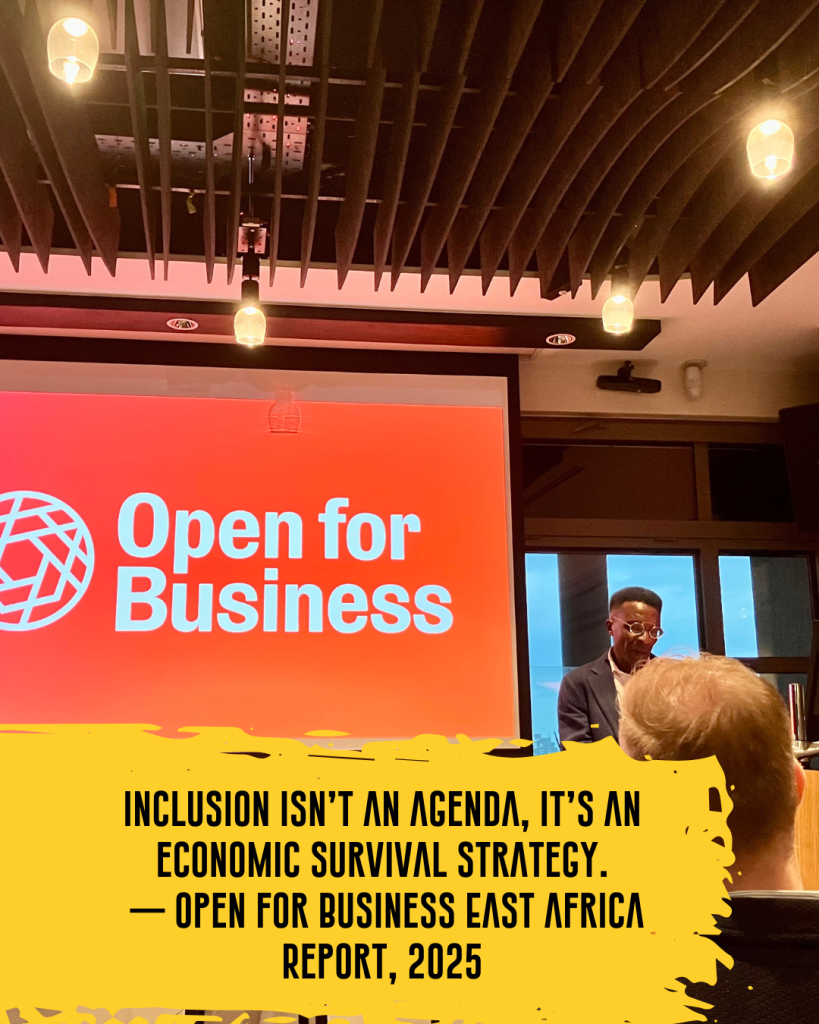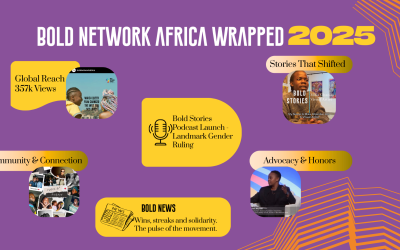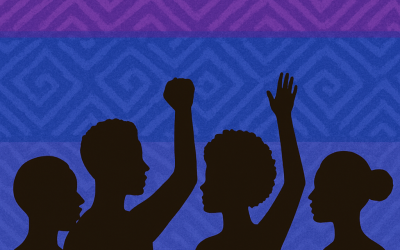Why Kenya must refuse the Family Protection Bill

On October 30th 2025, Open for Business presented their landmark report “The Economic Case for LGBTQ+ Inclusion in East Africa” in Nairobi, reminding leaders that laws which harm LGBTQ+ people stand in the way of prosperity for all.
In recent months the conversation in Kenya has shifted beneath the surface of ideological or moral arguments and into the realm of economics, a conversation that every Kenyan, regardless of sexual orientation, cannot afford to ignore. As the proposed Family Protection Bill (FPB) looms, our country stands at a pivotal crossroads. The question is not merely whether LGBTQ+ Kenyans should have their rights defended (of course they should) but whether all Kenyans can afford the cost of choosing exclusion.
The recently-released report by Open for Business, The Economic Case for LGBTQ+ Inclusion in East Africa, examines four countries in our region – Kenya, Uganda, Rwanda, Tanzania. Significantly, it provides data that shows discrimination against LGBTQ+ people is not just a social justice issue: it is an economic drag on growth.
What the data tell us
- The report estimates that across the four focus countries combined, discrimination against LGBTQ+ people costs up to USD 5 billion annually.
- Crucially, on the macroeconomic side, the study finds that “a one-unit increase in the GBGR (Global Barometer of Gay Rights) index is approximately associated with a 0.9% increase in GDP per capita” in sub-Saharan African countries.
- In the Kenya-specific brief, the report states that discrimination costs Kenya “as much as KSh 130 billion every year” (around USD 1 billion depending on conversion) in lost productivity, poor health outcomes, talent flight and so on.
- For Uganda, the report notes that after the passage of the 2023 Anti-Homosexuality Act (AHA), the country lost major advantages: it was removed from the US AGOA (African Growth and Opportunity Act) trade eligibility and saw donor funding and international investment slow down.
- The report draws attention to the linkage between poor LGBTQ+ rights records and lower investment, weaker ability to attract skilled talent, and worse global competitiveness.
What Kenya stands to lose if the FPB passes
The proposed Family Protection Bill in Kenya is modelled after or at least inspired by the Ugandan example. The Open for Business report explicitly warns: “If the FPB is passed, there would be serious economic impacts for Kenya similar to Uganda: Kenya could lose its AGOA eligibility, donor funding would be cut, and investor sentiment would be damaged.” The combined economic loss due to LGBTQ+ exclusion is already estimated to range between USD 360 million and USD 1.5 billion annually, underscoring how widespread and tangible the cost of discrimination has become.
The report warns that if Kenya’s Family Protection Bill were enacted, the resulting loss in trade, tourism, and foreign investment could reach as high as USD 7.1 billion, devastating not only key industries but also the livelihoods of millions of ordinary Kenyans.
Let’s break down what that means:
- Loss of foreign direct investment (FDI) and trade benefits: Investors look not only at the size of the market, but also at predictability, risk, reputation, and human capital. Laws that criminalise or heavily regulate sexual minorities increase country risk, hurt reputation, and reduce attractiveness for global firms. The correlation between LGBTQ+ rights and higher FDI is documented in the report.
- Talent flight and brain drain: Skilled workers are mobile. If Kenya is seen as hostile or risky for a portion of its population, it makes it harder to attract and retain the talented people essential for the transition to higher-value services and innovation-led growth. The report shows that more open countries are better able to build these sectors.
- Increased health, social and productivity costs: Discrimination and exclusion translate into worse health outcomes, interrupted education, lower productivity. These aren’t just issues for the excluded—they ripple across society. Every Kenyan payer of taxes and consumer of public services bears the cost. The Uganda example shows how the AHA triggered mass human rights violations and forced many into informal or precarious work.
- Damage to national reputation and tourism: International media coverage of oppressive laws harms the tourism sector, a key pillar for Kenya. The report highlights that negative press around LGBTQ+ rights hurts investor and tourism feeder countries.
- Opportunity cost of exclusion: The 0.9% GDP per capita figure is small-seeming in isolation but large when multiplied across a growing economy. If Kenya’s GDP per capita is, say, USD 2,000 (for example), then a 0.9% uplift would be about USD 18 per person. Spread over 50 million people, that’s nearly USD 1 billion in added value simply by improving rights/inclusion. Conversely, passing a bill that worsens rights would lock us out of that gain, and possibly push us backwards.
Why this matters for every Kenyan
You might think: “I’m not LGBTQ+ so this doesn’t affect me.” That would be a mistake. Inclusion isn’t about “pushing an agenda” for one subset of society, it’s about ensuring the economy functions at its full potential. When we exclude a portion of the population, we exclude their talents, their productivity, their ideas. We increase costs for everyone. We reduce our collective growth. In a country still grappling with unemployment, under-employment, informal sector dominance, and the need to increase skilled jobs and value-added sectors, we cannot afford any drag.
In other words: defending LGBTQ+ rights is not just a niche human-rights issue. It is an economic imperative for Kenya’s future. Passing the FPB would risk undermining Kenya’s competitiveness, harming livelihoods, and limiting the material wellbeing of all citizens, gay, straight, everyone.
Learning from Uganda
The Ugandan experience is instructive. When Uganda passed the Anti-Homosexuality Act in 2023, the report notes extensive human rights violations followed, and major international repercussions occurred (removal from AGOA, African Growth and Opportunity Act, donor funding cuts). Kenya may not yet have seen the full force of the consequences, but the writing is on the wall: exclusionary laws trigger economic consequences, and the “cost of discrimination” can quickly escalate.
Kenya is currently the largest economy in East Africa, with potential to grow its services, digital, tourism and creative sectors. The choice we face is whether we choose the path of openness and maximising our human-capital, or the path of repression and self-inflicted economic harm. The FPB is not just a law for one group, it is a signal to investors, to international partners, to Kenyan citizens about what kind of economy and society we want.
Conclusion: Inclusion as strategy, not charity
As a queer Kenyan filmmaker and content creator, I believe deeply in telling stories of our humanity, our love, our dreams. But even more urgently: I believe in our collective future. Let’s frame inclusion not as “giving rights” or “settling scores” but as a strategy for survival, for growth, for enabling Kenya to thrive in an increasingly competitive global economy.
If Kenya passes the Family Protection Bill, we risk undermining our own growth, reputation, and wellbeing. If instead we choose inclusion, we open the door not only to dignity for marginalized people, but to broad-based economic benefit for every Kenyan. The data from the Open for Business report show, now more than ever, this is not a soft optional policy. This is about survival.






Recent Comments